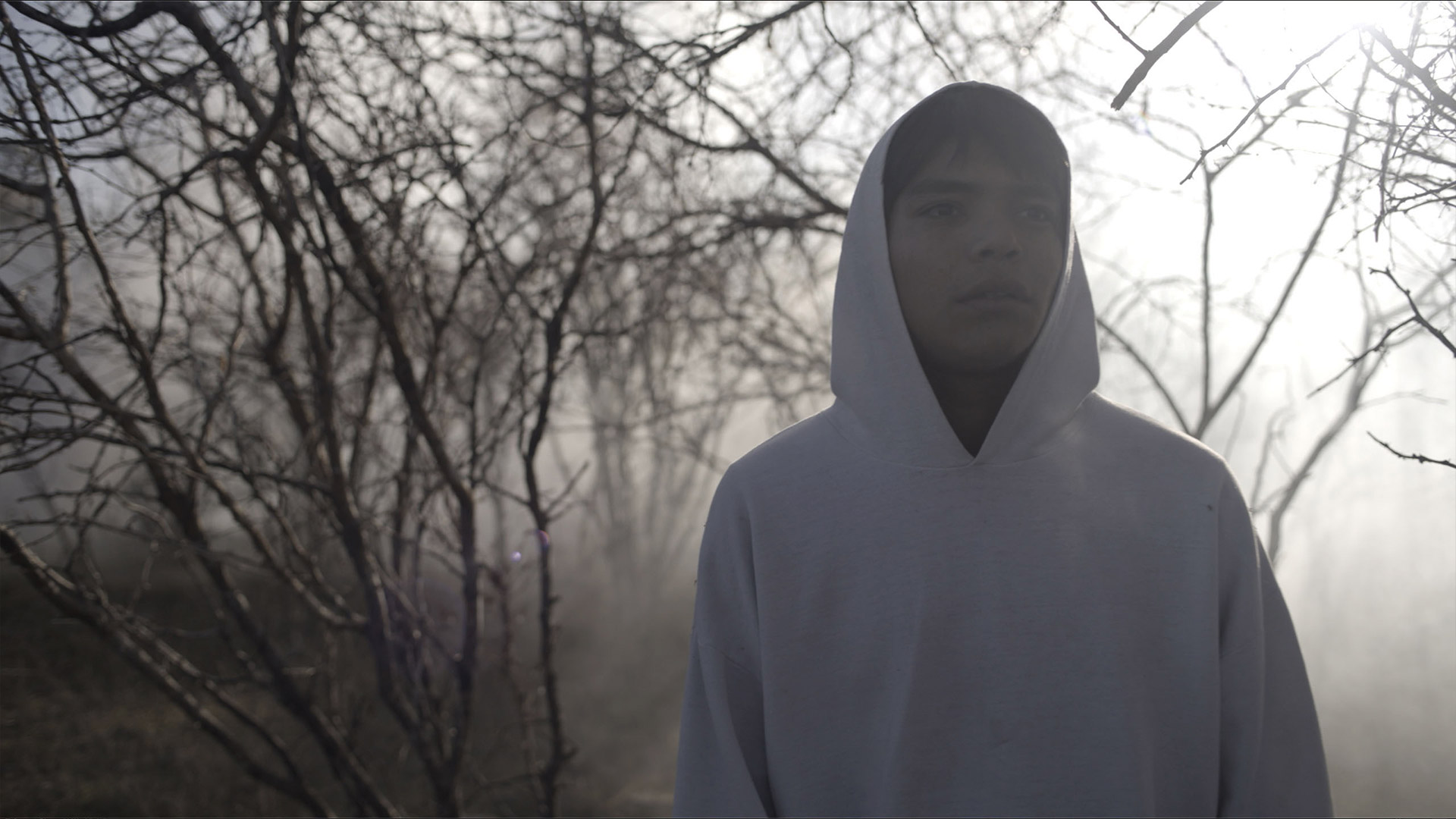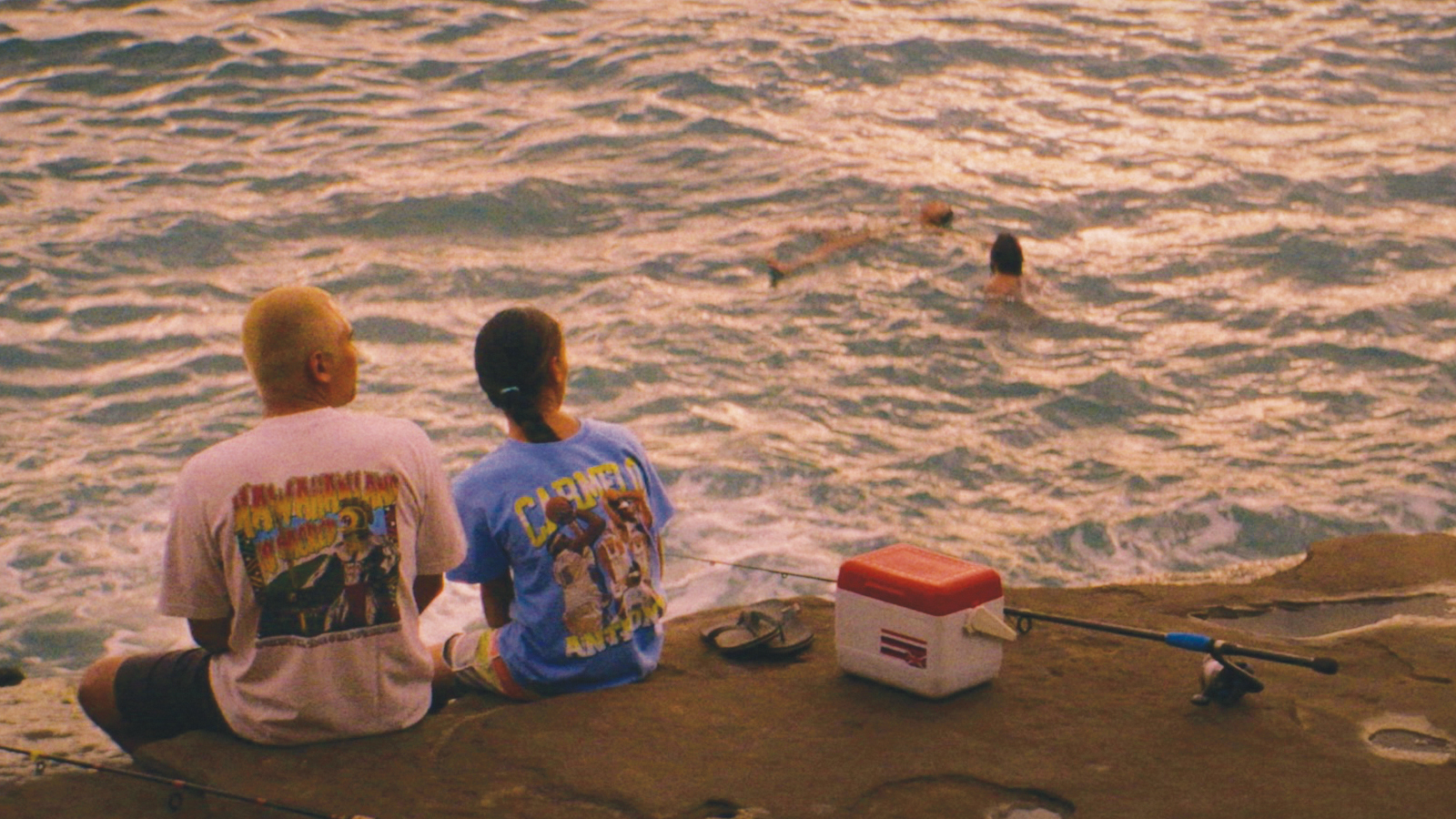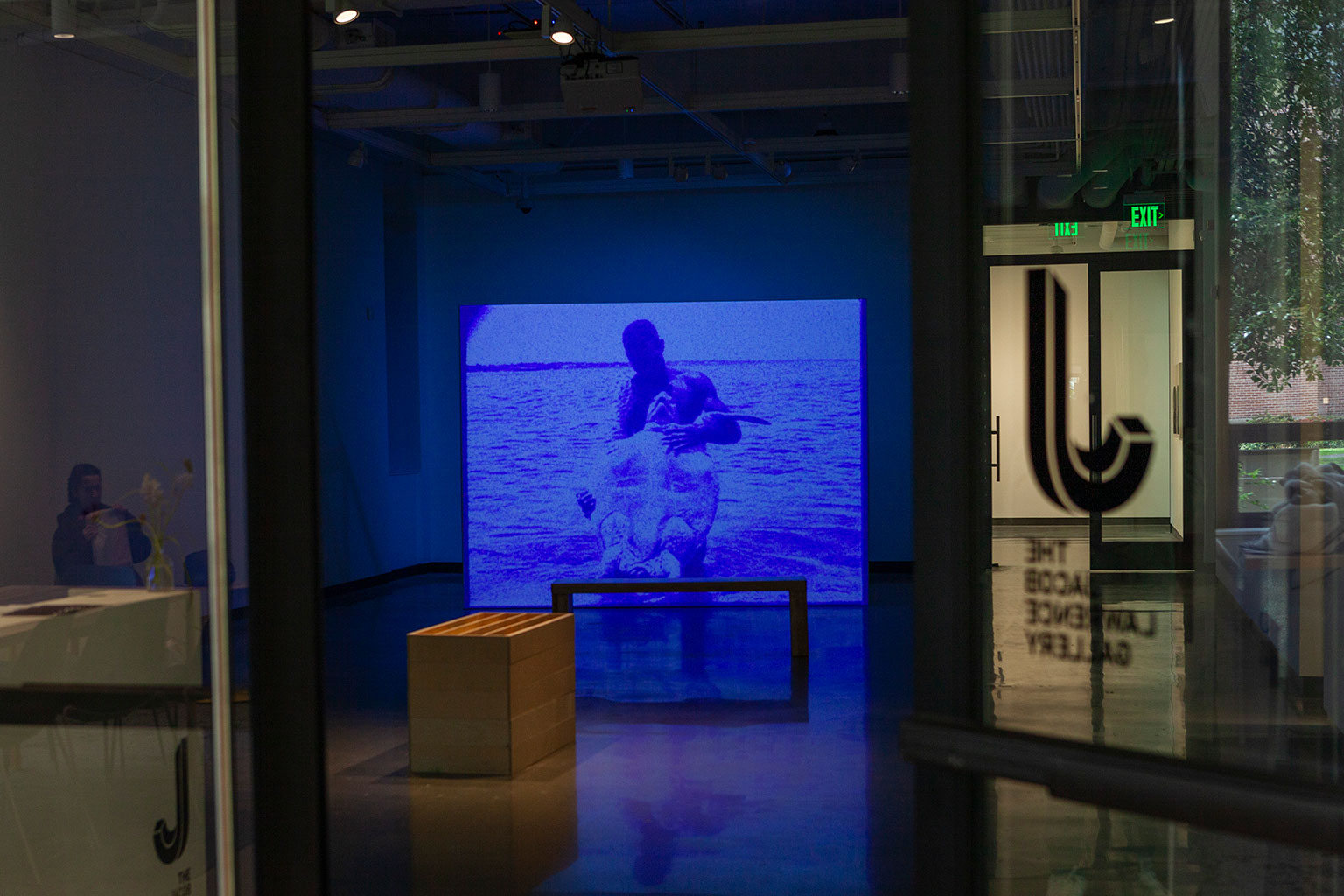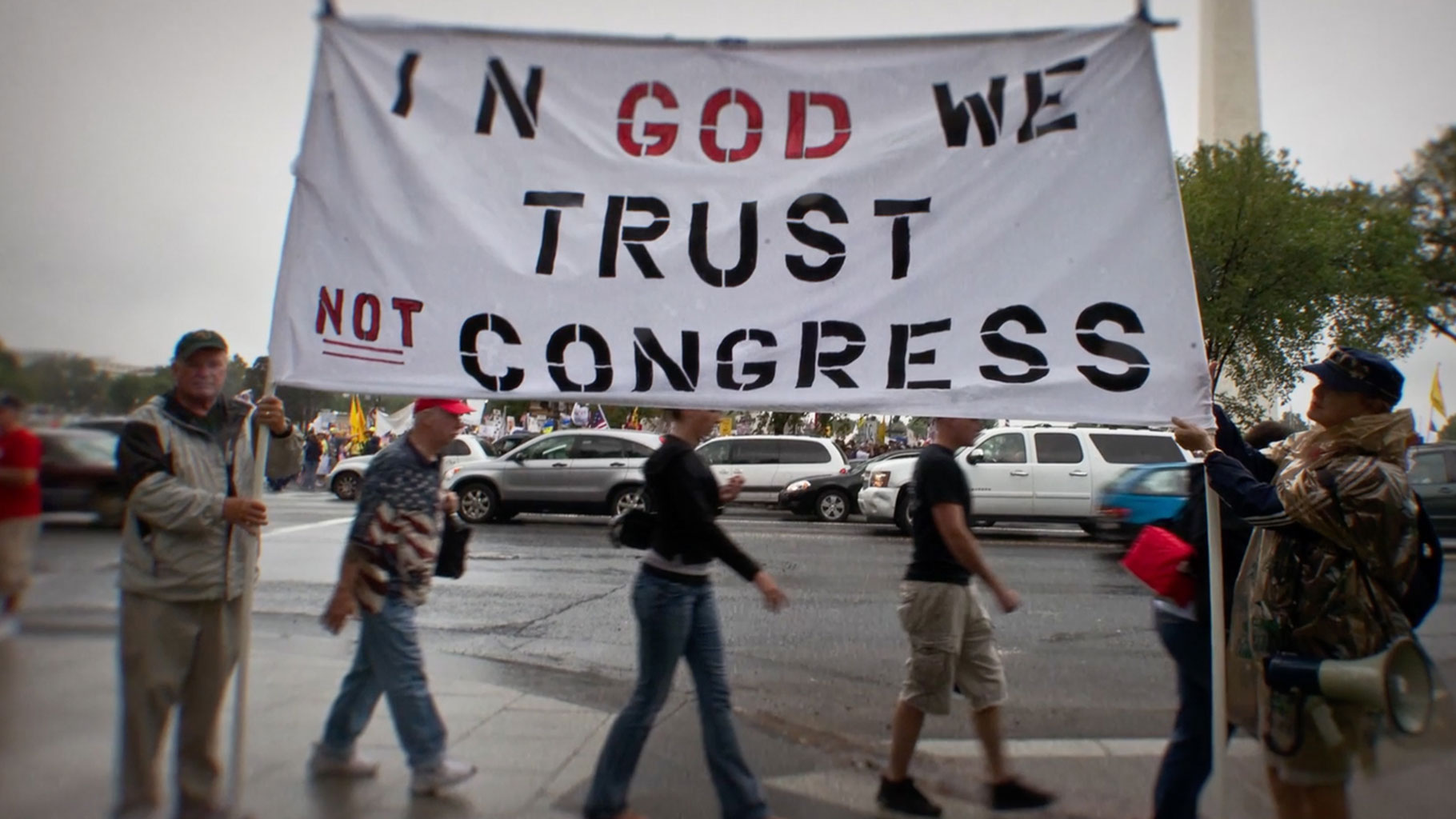
Photo courtesy of Nicholas Kamm AFP
Christian Nationalism’s Renewed Role in Modern Government
The origins of Bad Faith come from the 2016 election of former President Trump, which served as a “wake-up call.” For co-director Ujlaki, Trump’s victory seemed “out of left field” and made him think that he did not have a “true understanding of the country.”
“I used to think that I was keeping track of things. I was kind of a news junkie; I was following things — but of course, what I was following was not what I should have been following. I was just following in my bubble,” comments Ujlaki, who made his first film decades ago about the Vietnam War but found renewed purpose in the topics surrounding Bad Faith. Curious about the role of evangelicals in the election of Trump, Ujlaki began to look at the role of progressive and extremist evangelicals spanning the history of the country.
Bad Faith concisely defines Christian Nationalism in its opening moments. “[It is] political movement that believes America was founded as a ‘Christian Nation,’ privileging Christianity over all other faiths,” the film explains. “Masquerading as religion, this ideology exploits scripture and sacred symbols to achieve extremist objectives.”
The filmmakers then spend the remainder of the film outlining their thesis: Christian Nationalists aim to establish a Christian theocratic state by overthrowing current understandings of American democracy, which limit its power due to its current separation of church and state.
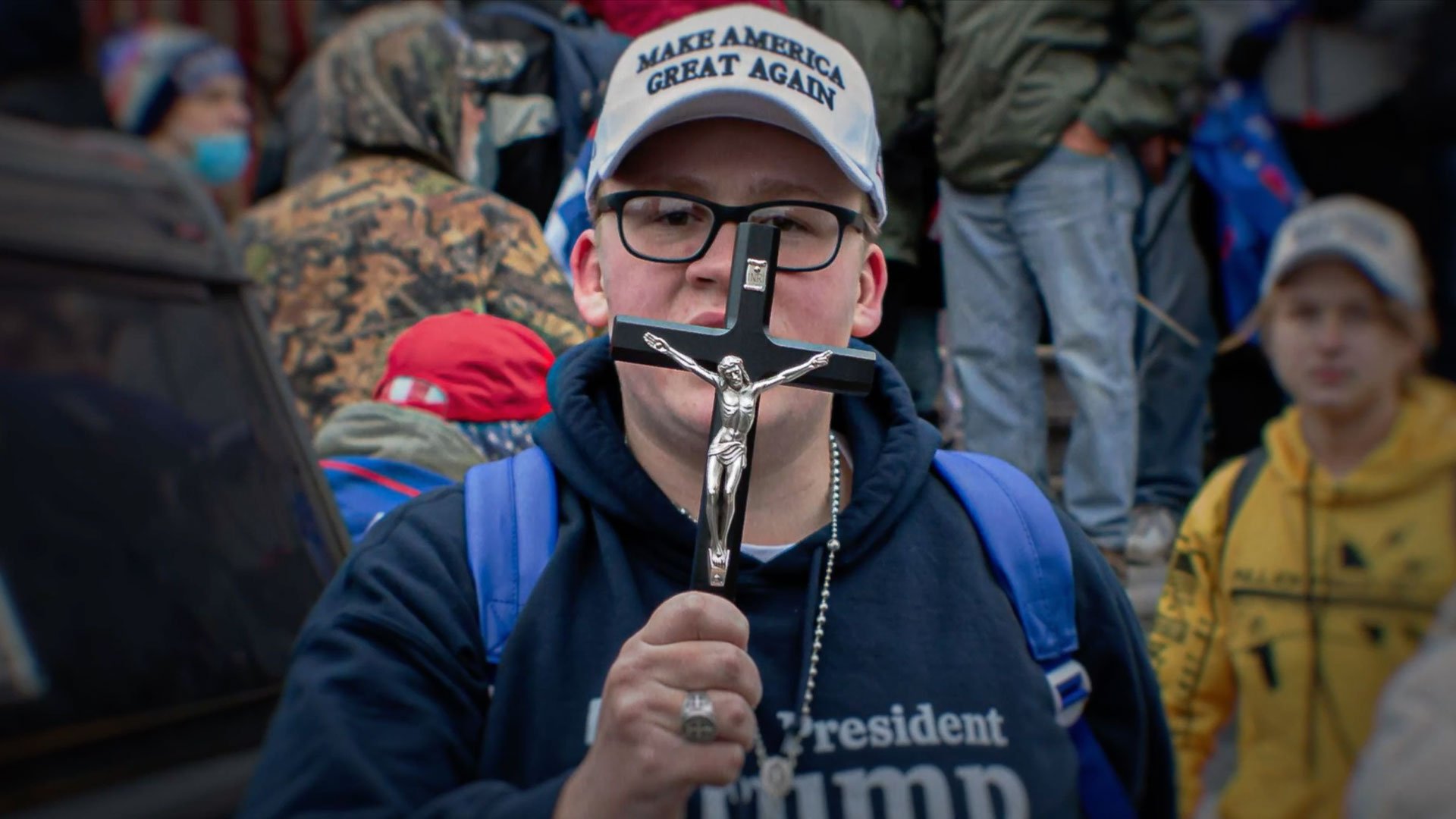
Photo courtesy of Pacific Press Media Production Corp. / Alamy Stock Photo
Researcher and author Anne Nelson’s 2019 book, “Shadow Network: Media, Money, and the Secret Hub of the Radical Right,” was highly influential upon Bad Faith and also constitutes a large part of the second half of the film. Nelson first began writing her book due to her experiences in Oklahoma, where she grew up.
“Oklahoma is one of the laboratory states of the radical right at this point. I saw the signs when I was visiting family a long time ago, but I thought that they were local,” Nelson explains. “With the election of Trump, I realized that these forces had extended beyond these states.”
Throughout Bad Faith, the growth of Christian Nationalism is shown through expertly-curated archival footage and recently-filmed footage. The filmmakers were careful to have leaders in the movement authentically share their own perspectives.
“We spent years going through [the footage] to get the people to essentially speak in their own words, and this is one of the things that I think is a powerful thing in this film,” says Ujlaki. “You’re hearing people say these things in their own words. We’re not even impugning them with anything. They’re saying exactly what they believe in.”
Bad Faith was shot across 25 different locations — and because some of the interviews were conducted during the pandemic, the documentary team relied on localized contractors for much of their filming. Often, the smaller film crews would be fairly anonymous and neutral politically, and served as excellent intermediaries between the filmmakers and the film subjects.
Some evangelical leaders the filmmakers pursued — such as Franklin Graham, who comes from a lineage of evangelical missionaries and large-scale prayer rallies that also serve as get-out-the-vote political events — denied the film team access. Others were more receptive, such as Pastor Ken Peters of the Patriot Church in Tennessee. Peters is a controversial figure, who has gained national attention for speaking out against topics such as drag performances and abortion, as well as encouraging his followers to promote or vote against related legislation.
“I think that Pastor Ken… felt that all publicity is good publicity. He was very proud of what he was doing,” says Ujlaki. “He was absolutely confident that he was getting the word out. He was using us; I think that was his feeling. And he was always being very solicitous to make sure that we got what we needed.”
In Bad Faith, Pastor Peter offers a solid framework for understanding around the mentality behind Christian Nationalism. “Our forefathers built this country upon Christianity and for Christians and said that if we ever left that, the Constitution wouldn’t work, and we’re seeing that today,” he explains. “People want to come here because we founded this country Christian principles.”
“The big idea about Christian Nationalism is that God made America for Christians,” Eboo Patel, founder of Interfaith America, counters. “And not all Christians — but a particular kind of white Christian with a particular theology and a particular political worldview. And that group is supreme in this nation, and everyone else is subordinate — and they need to be kept subordinate, with violence, if necessary.”
Agitation towards violence is seen throughout the film not only regarding events like the January 6 Insurrection, but also through the use of militarized language during sermons. During one incisive outburst, pastor Greg Locke of the Global Vision Bible Church is seen screaming and pounding the pulpit. After threatening that the Insurrection was just the beginning, he yells, “The church of the living God is an institution that the gates of hell should not prevail against it, and the Bible says that we will take it by force!”
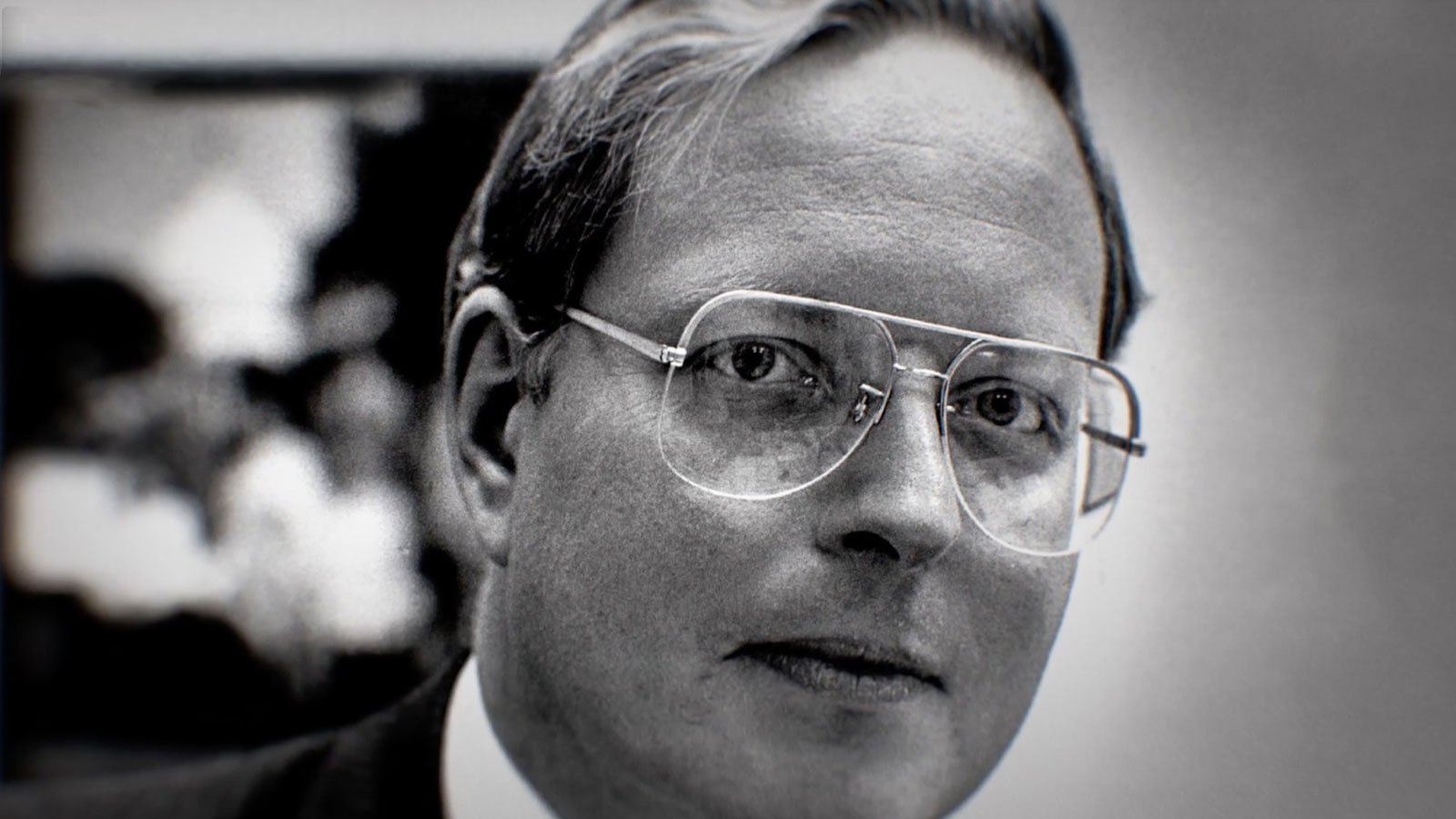
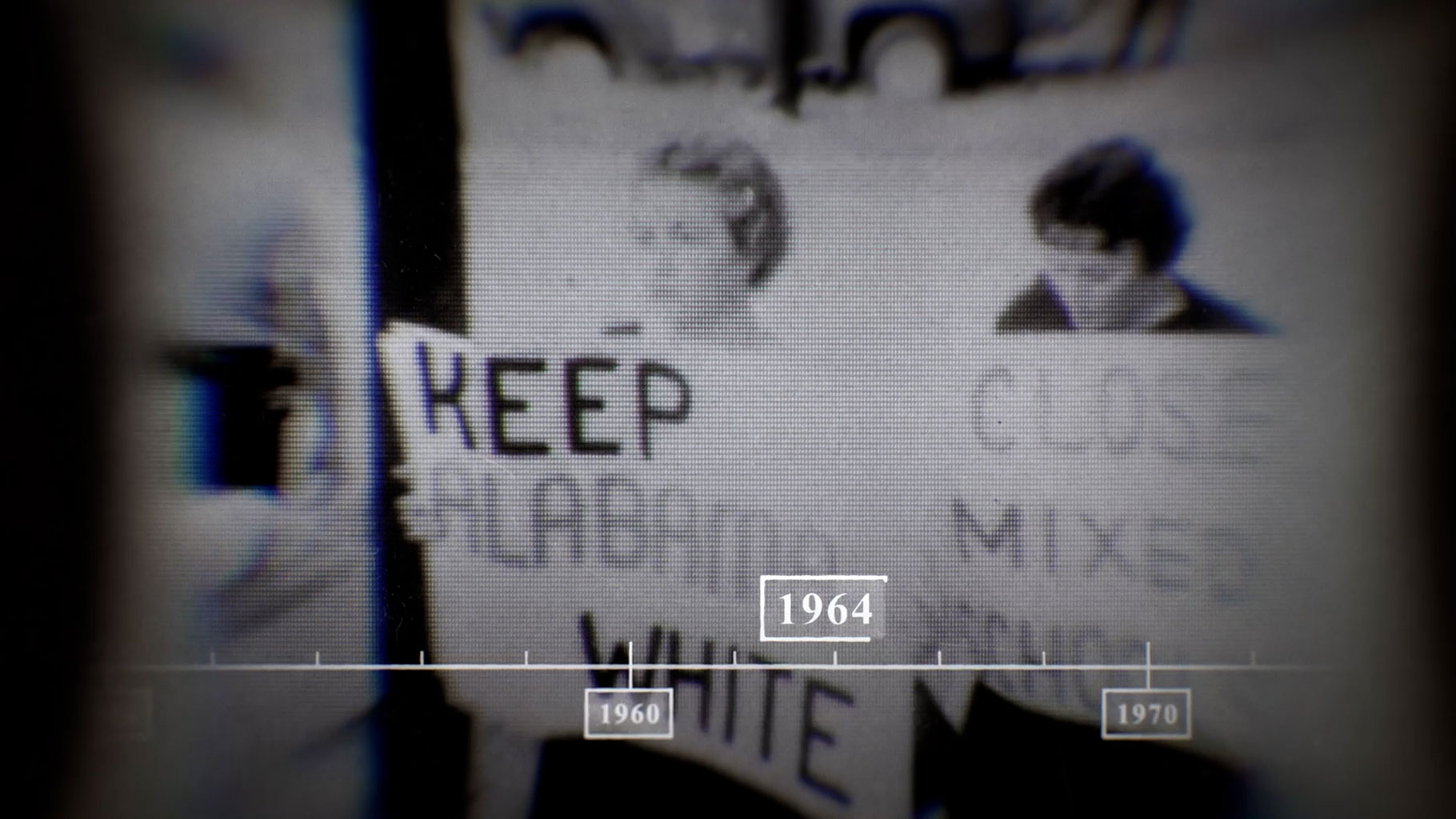
Photos courtesy of Panarea Productions; (top) Paul Weyrich, a religious conservative political activist and commentator who has significantly contributed to the Christian Nationalism movement
Bad Faith lays out the ways in which Christian Nationalism has ebbed and flowed throughout history — often as a response to civil rights movements or other movements that may ostensibly cede some power from dominant groups. Ujlaki believes that every uptick in Christian Nationalism happens whenever “the white Christian power structure [has been] challenged by the demographics.”
Periods in American history he cites as influential to the rise of Christian Nationalism include when African Americans could vote following the Civil War, upticks in immigration in the late ’10s and early ’20s, and integration in the ’50s and ’60s. In short, a relatively small minority of Christian Nationalists often goes within popular opinion, seeking to manipulate political systems and media networks to change the flow of power, all the while knowing that the majority of the American population does not think like they do.
“There’s a whole edifice of lies. It has been shocking, shocking to me to trace the way that they’ve manipulated people,” says Nelson. “One example alone is telling their followers that hydroxychloroquine and ivermectin are cures for COVID. People have died from that; people have gone into the emergency room with COVID, and they have not gotten vaccines because of this whole edifice of lies.”
“It’s all designed to sow distrust in the federal government, in universities and science, in public school teachers,” she continues. “It’s incredibly damaging.”
The idea of leveraging religion and politics to sow distrust in the federal government was something that emerged for Nelson as she researched her book and for Ujlaki as he created the film. Yet for both of them, it was a hard pill to swallow.
“One of the most staggering moments in my research into making the film was the realization that that strategy of dividing and sowing distrust and trying to get rid of democracy…” shares Ujlaki. “That was how they were going to do it; they were going to actually make people distrustful of every aspect of democracy, to the point where people felt they couldn’t trust it.”
“I felt the same way,” Nelson adds. “When I started writing my book, I thought, well… this is what I’m seeing, but am I right? And I just kept researching and researching. My book has 1,000 footnotes with the original video clips and the time codes and quotes… when you put all the pieces of a jigsaw puzzle together, and you see the picture, that’s what it is.”
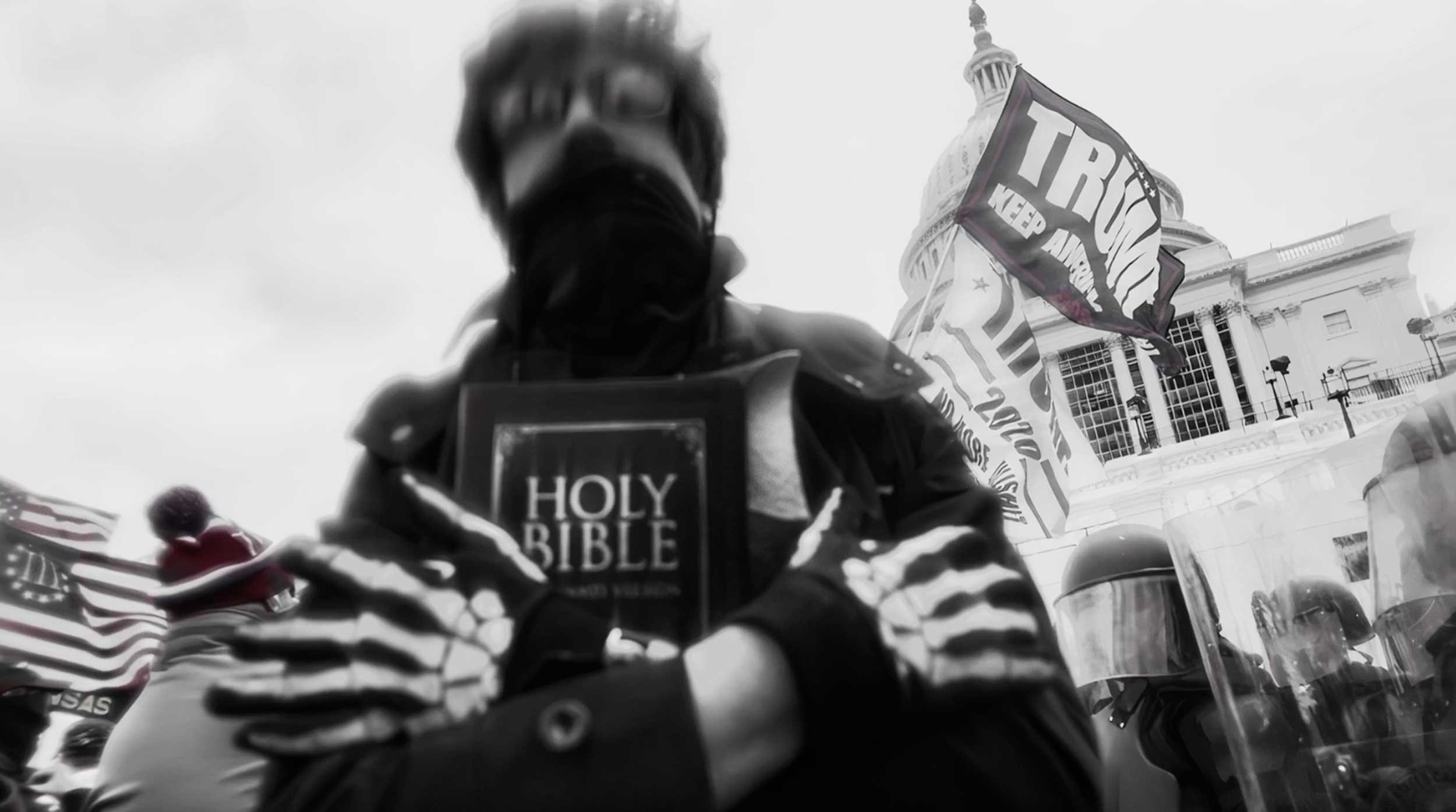
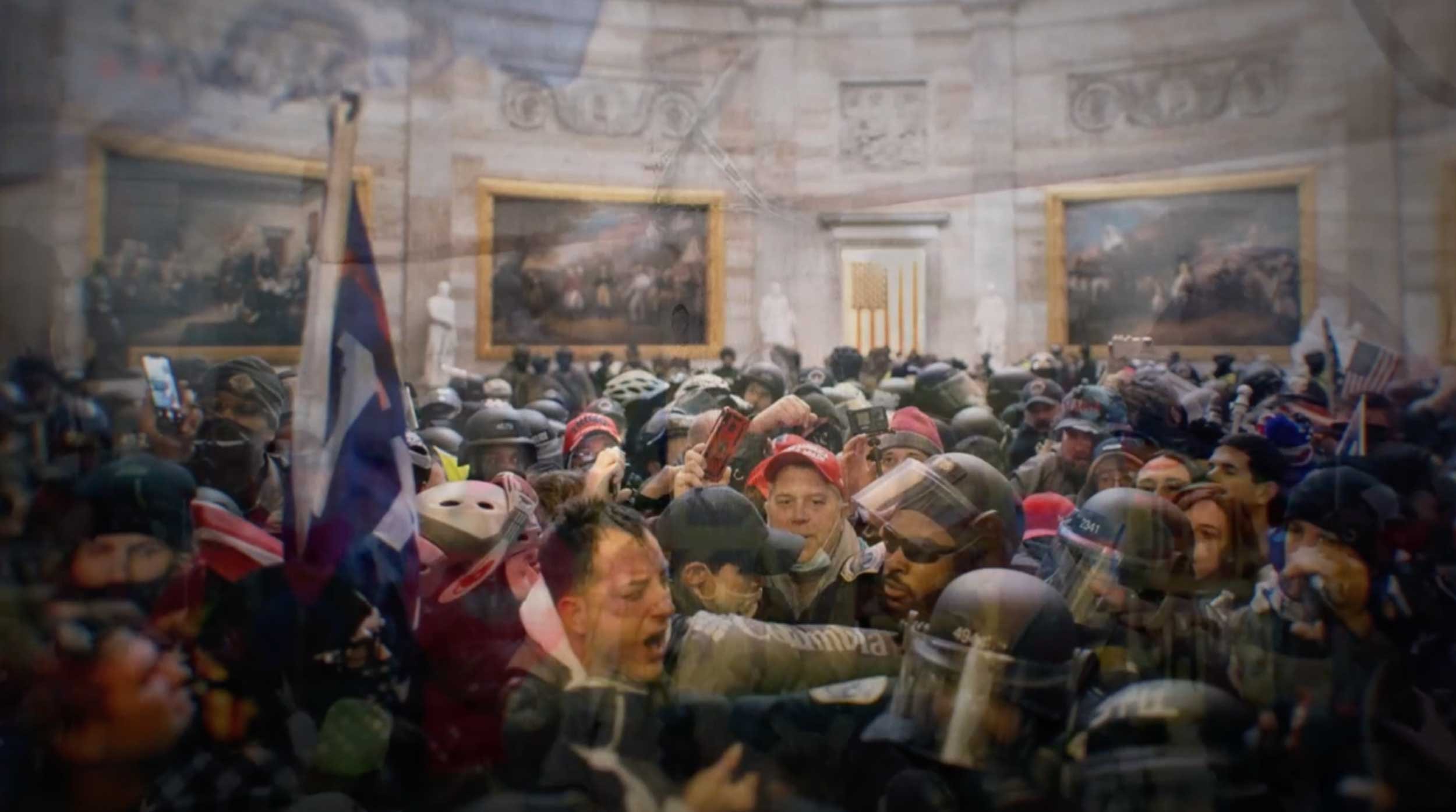
Photos courtesy of (top) John Minchillo / AP; (bottom) Mostafa Bassim/Anadolu Agency via Getty Images
Understanding the Network Effect
Both Ujlaki and Nelson understand that the national media have been reluctant to look at the concept of Christian Nationalism in politics and at the networks that are behind some of the movement. During the January 6th attack on the U.S. Capitol, for instance, a number of Christian Nationalist groups were present, but the national media did little to highlight those connections explicitly.
“The Christian Nationalists were very present at January 6th, and if you look at the footage, you see the crosses and you see the pictures of Jesus in a in a baseball cap and all of this symbolism,” comments Nelson, who highlights organizations like Turning Point USA and conservative thinkers such as Charlie Kirk as influential on using Christian Nationalism as a mechanism for political organizing.
Nelson explains that while Christian Nationalists were present on January 6th and sometimes overlapped with militia groups, their overlap wasn’t always 100%. Many organizations convened on the Capitol using different communication channels, and as such, the complex networks of involvement sometimes elude media coverage.
“Even in the New York Times yesterday, there was a very good piece that talks about all of these organizations,” explains Nelson, who stresses the importance of paying attention to the “network effect.” “They make them sound like they’re grassroots organizations that are independent, and they’re not. They’re on each other’s board. They’re funding each other. They’re meeting together several times a year. I keep talking about it as a well-oiled corporation, and all the parts move in sync. And that’s why they’re so effective. And the Democrats have nothing remotely resembling that level of coordination.”
In Bad Faith and Nelson’s book, the interconnection between the major players of the Christian Nationalist movement — and how they’re tied into politics, resource extraction, or other significant industries — is key to understanding how entrenched the movement is with larger power structures.
“We follow the money,” says Nelson. “[Their] donor network is largely based in the extractive industries. Fossil fuels from Texas and Oklahoma and Louisiana, as well as the DeVos family in Michigan — and so, when you put millions and millions of dollars behind this operation, it transforms the politics.”
Along the way, Nelson stresses that the Christian Nationalist movement changes their victims, depending on the political and social whims of the moment. Amongst their victims have been Muslim, LGBTQ+, and transgender people — and campaigns against all of those groups have been well-funded.
“You can kind of look at their menu in this new Project 2025, where if you go through it carefully… you can just see who they’re picking off,” comments Nelson. “It’s quite cruel, the way they go about it — and they stir up hatred against minority groups that really have real-life outcomes in various parts of the country.”
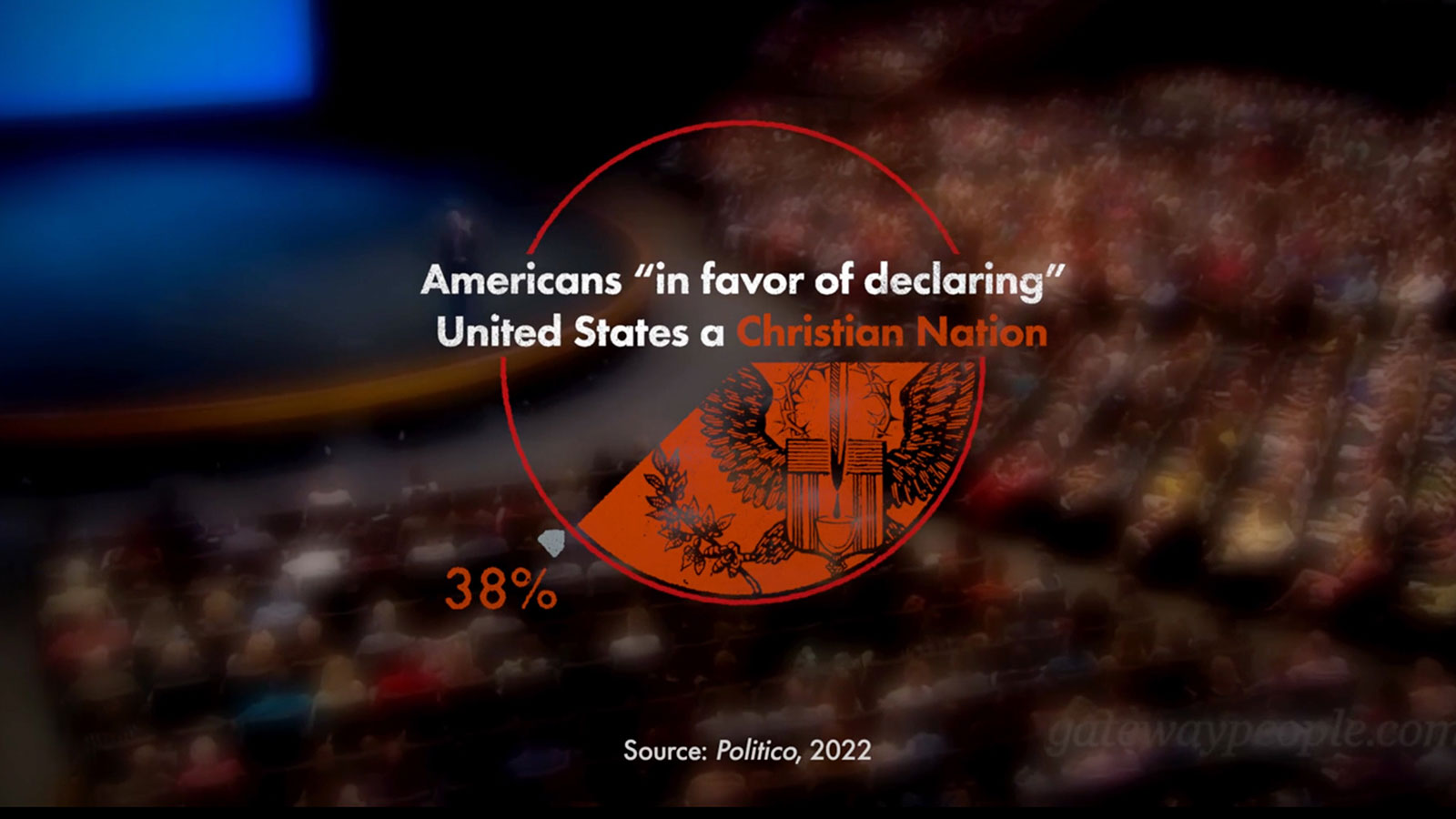
Photos courtesy of Panarea Productions
Project 2025, also known as the Presidential Transition Project, is a collection of policy proposals recently released by Republicans and championed by many conservative groups. The proposals are explicitly designed to reshape the U.S. federal government, should former President Trump win the 2024 U.S. Presidential Election against Democratic incumbent President Joe Biden. Most importantly, Project 2025 is media-savvy, created by conservative groups that are well-aware how to convey their message to the wider public.
“The other thing about these organizations is that they have their own media systems, their own Christian broadcasting, right-wing radio stations, and now a proliferation of social media platforms,” she adds, hinting at platforms such as Truth Social, which former President Trump created after being banned from Twitter for misinformation.
“[Using these outlets,] they really have a unique ability to manipulate key sectors of the electorate in the States that they have to win,” Nelson continues. “They know that they can only rule by a minority. It’s the 40 years of funding and strategies that have led them to the point where they know which levers to pull.”
With their ability to reveal such connections, Bad Faith can be a challenging film. Review after review have described it as “scary,” because it depicts a reality many would prefer not to face.
“It’s scary because it’s telling you what your reality is, and you don’t want to know it, but this is what it is,” Ujlaki comments.
Yet should you believe the arguments Bad Faith presents, you might also be convinced that the film is urgent and important. As Nelson asserts, Democrats may not have anything that even resembles the level of coordination that Christian Nationalists might — but this lack of coordination is why Bad Faith is an essential conversation-starter and community-organizing tool.
The filmmakers have a grassroots plan to encourage community screenings. As Ujlaki explains, “We have a whole scaling of price, for people who can really afford it and organizations that are well-financed, to… actual grassroots organizations that have very little money, but they have the ability to put together a screening with X number of people… we’re doing everything we can to get it to as many people as possible.”
Leading up to the November 2024 elections, the filmmakers hope to build upon existing relationships they have with universities, faith and interfaith organizations, and grassroots entities, as well as encourage other interested parties to come to them for discussion and collaboration.
The reason?
“It Trump wins, it’s the end, in a lot of ways,” Ujlaki concludes. “Yeah, it’s the end.”
The end of what? Democracy, possibly.
Bad Faith Film Trailer
Ω


